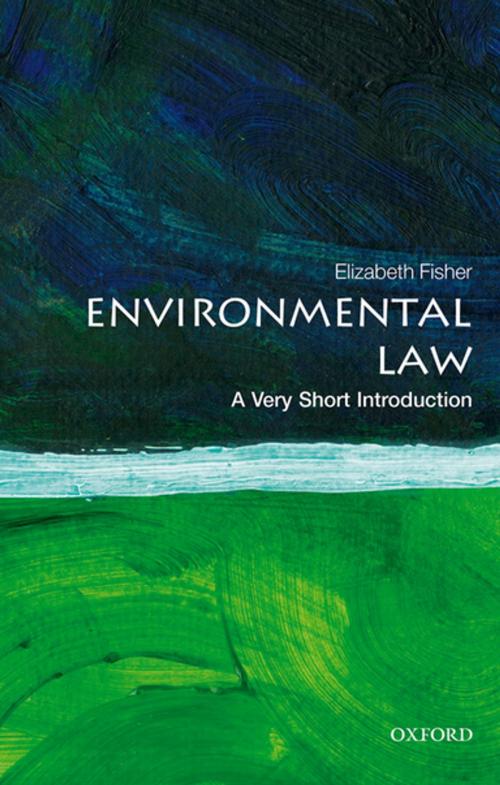Environmental Law: A Very Short Introduction
Nonfiction, Reference & Language, Law, Environmental, Science & Nature, Technology| Author: | Elizabeth Fisher | ISBN: | 9780192512635 |
| Publisher: | OUP Oxford | Publication: | October 19, 2017 |
| Imprint: | OUP Oxford | Language: | English |
| Author: | Elizabeth Fisher |
| ISBN: | 9780192512635 |
| Publisher: | OUP Oxford |
| Publication: | October 19, 2017 |
| Imprint: | OUP Oxford |
| Language: | English |
Environmental law is the law concerned with environmental problems. It is a vast area of law that operates from the local to the global, involving a range of different legal and regulatory techniques. In theory, environmental protection is a no brainer. Few people would actively argue for pollution or environmental destruction. Ensuring a clean environment is ethically desirable, and also sensible from a purely self-interested perspective. Yet, in practice, environmental law is a messy and complex business fraught with conflict. Whilst environmental law is often characterized in overly simplistic terms, with a law being seen as be a magic wand that solves an environmental problem, the reality is that creating and maintaining a body of laws to address and avoid problems is not easy, and involves legislators, courts, regulators and communities. This Very Short Introduction provides an overview of the main features of environmental law, and discusses how environmental law deals with multiple interests, socio-political conflicts, and the limits of knowledge about the environment. Showing how interdependent societies across the world have developed robust and legitimate bodies of law to address environmental problems, Elizabeth Fisher discusses some of the major issues involved in environmental law's: nation statehood, power, the reframing role of law, the need to ensure real environmental improvements, and environmental justice. As Fisher explains, environmental law is, and will always be, necessary but inherently controversial. ABOUT THE SERIES: The Very Short Introductions series from Oxford University Press contains hundreds of titles in almost every subject area. These pocket-sized books are the perfect way to get ahead in a new subject quickly. Our expert authors combine facts, analysis, perspective, new ideas, and enthusiasm to make interesting and challenging topics highly readable.
Environmental law is the law concerned with environmental problems. It is a vast area of law that operates from the local to the global, involving a range of different legal and regulatory techniques. In theory, environmental protection is a no brainer. Few people would actively argue for pollution or environmental destruction. Ensuring a clean environment is ethically desirable, and also sensible from a purely self-interested perspective. Yet, in practice, environmental law is a messy and complex business fraught with conflict. Whilst environmental law is often characterized in overly simplistic terms, with a law being seen as be a magic wand that solves an environmental problem, the reality is that creating and maintaining a body of laws to address and avoid problems is not easy, and involves legislators, courts, regulators and communities. This Very Short Introduction provides an overview of the main features of environmental law, and discusses how environmental law deals with multiple interests, socio-political conflicts, and the limits of knowledge about the environment. Showing how interdependent societies across the world have developed robust and legitimate bodies of law to address environmental problems, Elizabeth Fisher discusses some of the major issues involved in environmental law's: nation statehood, power, the reframing role of law, the need to ensure real environmental improvements, and environmental justice. As Fisher explains, environmental law is, and will always be, necessary but inherently controversial. ABOUT THE SERIES: The Very Short Introductions series from Oxford University Press contains hundreds of titles in almost every subject area. These pocket-sized books are the perfect way to get ahead in a new subject quickly. Our expert authors combine facts, analysis, perspective, new ideas, and enthusiasm to make interesting and challenging topics highly readable.















